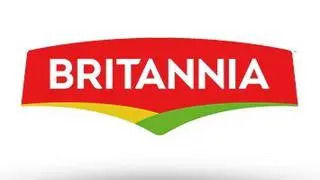Vincent Cobee believes that India will play a big role in the Datsun global story.
“India is probably the most competitive country in the world for the automotive industry. It does not cover 100 per cent of technology or components required to make a car but it is giving a good 97 per cent,” Vicent Cobee, Corporate Vice-President of Nissan Motor’s Datsun business unit, told Business Line .
And of this (97 per cent), India is the cheapest, or the second cheapest, globally for at least “80-85 per cent”. It is this strength that Nissan expects to drawn upon as it embarks upon its most ambitious car project in recent times.
Cobee is also of the view that the Datsun brand, targeted at the new emerging middle class, has the potential to go well and truly global.
“We want to stay focused on four countries (India, Russia, Indonesia and South Africa) initially and make this project a reality. Of course, we will go beyond that because the emerging new middle-class will hopefully happen in many places,” he says.
Critical pivot
India will be a critical pivot in this global drive as it is it is home to Nissan’s biggest engineering centre (in Chennai) outside of Japan. As Cobee points out, it is “only obvious that we will try to reap the benefits and use this knowledge”.
India, he adds, is “fundamentally the winner of tomorrow” because the mindset of its people is a combination of development and respect for limited resources. Terming this a “fantastic tool”, it also explains why the Datsun was developed in Chennai and not Japan.
Cobee reiterates that India’s decision to opt for a “route of free trade and basic competitiveness” will hold it in good stead for the future. “It is a hard route when other (emerging) countries are taking a more protectionist approach but could be planting the seeds of problems in the mid-term.”
India, however, has a more open door, competitive policy and is taking an “ambitious and sustainable route which means it stands to reap the fruits”.
Low-cost brand
Cobee literally bristles at any reference to Datsun as a low-cost brand. “The person in India buying a Rs 3-4 lakh car spends 1-2 years of his disposable income making this happen. It is just wrong to term it low-cost.”
As he puts it, the Datsun will be sold in a dedicated brand environment. The repeat experience customer is part of Nissan while the emerging middle-class with high aspiration will constitute the Datsun base. “Our job is to ensure that these two brand environments meet the needs of these different customers,” says Cobee.
Different ballgame
For someone who was heading projects for the Nissan March, Micra and Sunny, the Datsun initiative was a different ballgame. After all, these mass models are sold in over 150 countries where one needs to find the “sweet spot”.
“However, for the Datsun, I have one customer in India and maybe that product will appeal to others too. This enables you to be much clearer and stronger,” explains Cobee.
Research on Datsun
There were interesting experiences while carrying out research on the Datsun. The Nissan head of Indonesia told him there was a particular problem with the (Nissan) brand as many customers felt they did not belong to the dealership. “They were afraid of entering the showrooms being first-time buyers. Entering an unfamiliar world scared them,” he says.
As for India, the important issues in a car are acceleration, fuel economy, braking and visibility. “Here you have the most number of road deaths but nearly 70 per cent of them were not in a car. As a carmaker, I can help through better visibility and braking,” says Cobee.
It is these details which were critical and needed to be addressed first. “It is a fresh opportunity for me on the engineering space to meet the needs of a particular customer in a particular country,” he adds.








Comments
Comments have to be in English, and in full sentences. They cannot be abusive or personal. Please abide by our community guidelines for posting your comments.
We have migrated to a new commenting platform. If you are already a registered user of TheHindu Businessline and logged in, you may continue to engage with our articles. If you do not have an account please register and login to post comments. Users can access their older comments by logging into their accounts on Vuukle.